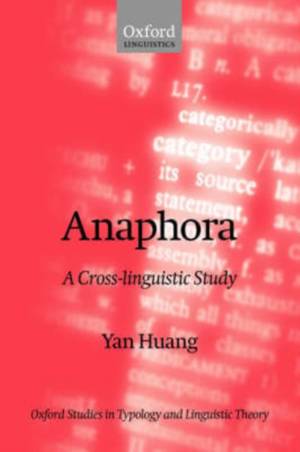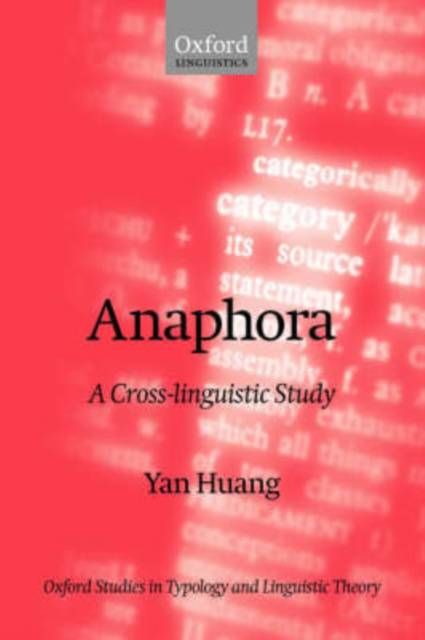
- Afhalen na 1 uur in een winkel met voorraad
- Gratis thuislevering in België vanaf € 30
- Ruim aanbod met 7 miljoen producten
- Afhalen na 1 uur in een winkel met voorraad
- Gratis thuislevering in België vanaf € 30
- Ruim aanbod met 7 miljoen producten
Zoeken
Omschrijving
Understanding any communication depends on the listener or reader recognizing that some words refer to what has already been said or written (his, its, he, there, etc.). This mode of reference, anaphora, involves complicated cognitive and syntactic processes, which people usually perform unerringly, but which present formidable problems for the linguist and cognitive scientist trying to explain precisely how comprehension is achieved.
Yan Huang provides an extensive and accessible overview of the major contemporary issues surrounding anaphora and gives a critical survey of the many and diverse contemporary approaches to it. He provides by far the fullest cross-linguistic account yet published: Dr Huang's survey and analysis are based on a rich collection of data drawn from around 450 of the world's languages.
Yan Huang provides an extensive and accessible overview of the major contemporary issues surrounding anaphora and gives a critical survey of the many and diverse contemporary approaches to it. He provides by far the fullest cross-linguistic account yet published: Dr Huang's survey and analysis are based on a rich collection of data drawn from around 450 of the world's languages.
Specificaties
Betrokkenen
- Auteur(s):
- Uitgeverij:
Inhoud
- Aantal bladzijden:
- 412
- Taal:
- Engels
- Reeks:
Eigenschappen
- Productcode (EAN):
- 9780198235286
- Verschijningsdatum:
- 9/11/2000
- Uitvoering:
- Paperback
- Formaat:
- Trade paperback (VS)
- Afmetingen:
- 156 mm x 234 mm
- Gewicht:
- 580 g

Alleen bij Standaard Boekhandel
+ 235 punten op je klantenkaart van Standaard Boekhandel
Beoordelingen
We publiceren alleen reviews die voldoen aan de voorwaarden voor reviews. Bekijk onze voorwaarden voor reviews.








